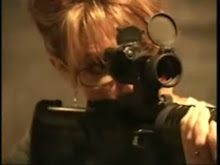From Jessica Yellin
CNN
11:23 a.m. EDT, Mon September 22, 2008
ANCHORAGE, Alaska (CNN) -- Alaska Gov. Sarah Palin's hometown required women to pay for their own rape examinations while she was mayor, a practice her police chief fought to keep as late as 2000.
A former Alaskan lawmaker says it seems unlikely that Gov. Sarah Palin was unaware of Wasilla's policy.
Former state Rep. Eric Croft, a Democrat, sponsored a state law requiring cities to provide the examinations free of charge to victims. He said the only ongoing resistance he met was from Wasilla, where Palin was mayor from 1996 to 2002.
"It was one of those things everyone could agree on except Wasilla," Croft told CNN. "We couldn't convince the chief of police to stop charging them."
Alaska's Legislature in 2000 banned the practice of charging women for rape exam kits -- which experts said could cost up to $1,000.
Palin, the Republican nominee for vice president, often talks about her experience running Wasilla, population approximately 7,000, and that has prompted close scrutiny of her record there. Wasilla's practice of charging victims for their rape exams while she was mayor has gotten wide circulation on the Internet and in the mainstream media. Watch CNN's Jessica Yellin check the facts in Wasilla »
Some supporters of Palin say they believe she had no knowledge of the practice. But critics call it "outrageous" and question Palin's commitment to helping women who are the victims of violence.
For years, Alaska has had the worst record of any state in rape and in murder of women by men. The rape rate in Alaska is 2.5 times the national average.
Interviews and a review of records turned up no evidence that Palin knew that rape victims were being charged in her town. But Croft, the former state representative who sponsored the law changing the practice, says it seems unlikely Palin was not aware of the issue.
Don't Miss
No-shows stall hearing in Palin inquiry
Todd Palin: 'first dude' or 'shadow governor?'
McCain, Obama in tight race as debates loom
"I find it hard to believe that for six months a small town, a police chief, would lead the fight against a statewide piece of legislation receiving unanimous support and the mayor not know about it," Croft said.
During the time Palin was mayor of Wasilla, her city was not the only one in Alaska charging rape victims. Experts testified before the Legislature that in a handful of small cities across Alaska, law enforcement agencies were charging victims or their insurance "more than sporadically."
One woman who wrote in support of the legislation says she was charged for her rape exam by a police department in the city of Juneau, which is hundreds of miles from Wasilla.
But Wasilla stood out. Tara Henry, a forensic nurse who has been treating rape victims across Alaska for the last 12 years, told CNN that opposition to Croft's bill from Wasilla Police Chief Charlie Fannon was memorable.
"Several municipal law enforcement agencies in the state did have trouble budgeting and paying for the evidence collection for sexual assault victims," Henry said. "What I recall is that the chief of police in the Wasilla police department seemed to be the most vocal about how it was going to affect their budget."
Croft has a similar memory. He said victims' advocates suggested he introduce legislation as a way to shame cities into changing their practice, and Wasilla resisted.
"I remember they had continued opposition," Croft said. "It was eight years ago now, but they were sort of unrepentant that they thought the taxpayers shouldn't have to pay for that."
He does not recall discussing the issue with then-Mayor Palin.
The bill, HB270, was before the legislature for six months. In testimony, one expert called the practice of billing the victim "incomprehensible." Others compared it to "dust[ing] for fingerprints" after a burglary, only "the victim's body is the crime scene."
During a rape exam, the victim removes her clothing and a medical professional gathers DNA evidence from her body. There is also a medical component to assess her injuries. That component has led some law enforcement agencies to balk at paying.
Henry, the forensic nurse, said charging victims "retraumatizes them."
"Asking them to pay for something law enforcement needs in order to investigate their case, it's almost like blaming them for getting sexually assaulted," she said.
The Alaska Legislature agreed. The bill passed unanimously with the support of the Alaska Department of Public Safety, the Alaska Peace Officers Association and more than two dozen co-sponsors.
After it became law, Wasilla's police chief told the local paper, The Frontiersman, that it would cost the city $5,000 to $14,000 a year -- money that he'd have to find.
"In the past, we've charged the cost of the exams to the victim's insurance company when possible," Fannon was quoted as saying. "I just don't want to see any more burden on the taxpayer."
He suggested the criminals should pay as restitution if and when they're convicted. Repeated attempts to reach Fannon for comment were unsuccessful.
Judy Patrick, who was Palin's deputy mayor and friend, blames the state.
"The bigger picture of what was going on at the time was that the state was trying to cut their own budget, and one of the things that they were doing was passing on costs to cities, and that was one of the many things that they were passing on, the cost to the city," said Patrick, who recalls enormous pressure to keep the city's budget down.
But the state was never responsible for paying the costs of local investigations. Patrick was also a member of Wasilla City Council, and she doesn't recall the issue coming before council members, nor does she remember discussing the issue with Palin.
She does recall Palin going through the budget in detail. She said Palin would review each department's budget line by line and send it back to department heads with her changes.
"Sarah is a fiscal conservative, and so she had seen that the city was heading in a direction of bigger projects, costing taxpayers more money, and she was determined to change that," Patrick said.
Before Palin came to City Hall, the Wasilla Police Department paid for rape kits out of a fund for miscellaneous costs, according to the police chief who preceded Fannon and was fired by Palin. That budget line was cut by more than half during Palin's tenure, but it did not specifically mention rape exams.
In a statement, Jill Hazelbaker, communications director for Sen. John McCain's presidential campaign, said that "to imply that Gov. Palin is or has ever been an advocate of charging victims for evidence gathering kits is an utter distortion of reality."
"As her record shows, Gov. Palin is committed to supporting victims and bringing violent criminals to justice," Hazelbaker said. "She does not, nor has she ever believed that rape victims should have to pay for an evidence gathering test."
Those who fought the policy are unconvinced.
"It's incomprehensible to me that this could be a rogue police chief and not a policy decision. It lasted too long and it was too high-profile," Croft said.
The rape kit charges have become an issue among Palin critics who say as governor she has not done enough to combat Alaska's epidemic problem of violence against women. They point to a small funding increase for domestic violence shelters at a time when Alaska has a multibillion-dollar budget surplus. Victims' advocates say that services are lacking and that Palin cut funding for a number of programs that treat female victims of violence.
In the past week, Alaska's challenges with sexual assault have been in the spotlight again -- in connection with an ongoing inquiry into whether Palin abused her power by firing the head of Alaska's Department of Public Safety. Palin's office released e-mails showing that one area of disagreement between her and Department of Public Safety Commissioner Walt Monegan was his lobbying in Washington for $30 million to fund a new program of sexual assault response teams.
The McCain-Palin campaign insists that fighting domestic violence and sexual assault are priorities for Palin. And they say she has been looking at other programs to support. As governor, Palin approved a funding increase for domestic violence shelters -- $266,200 over two years. And she re
Subscribe to:
Post Comments (Atom)


























No comments:
Post a Comment